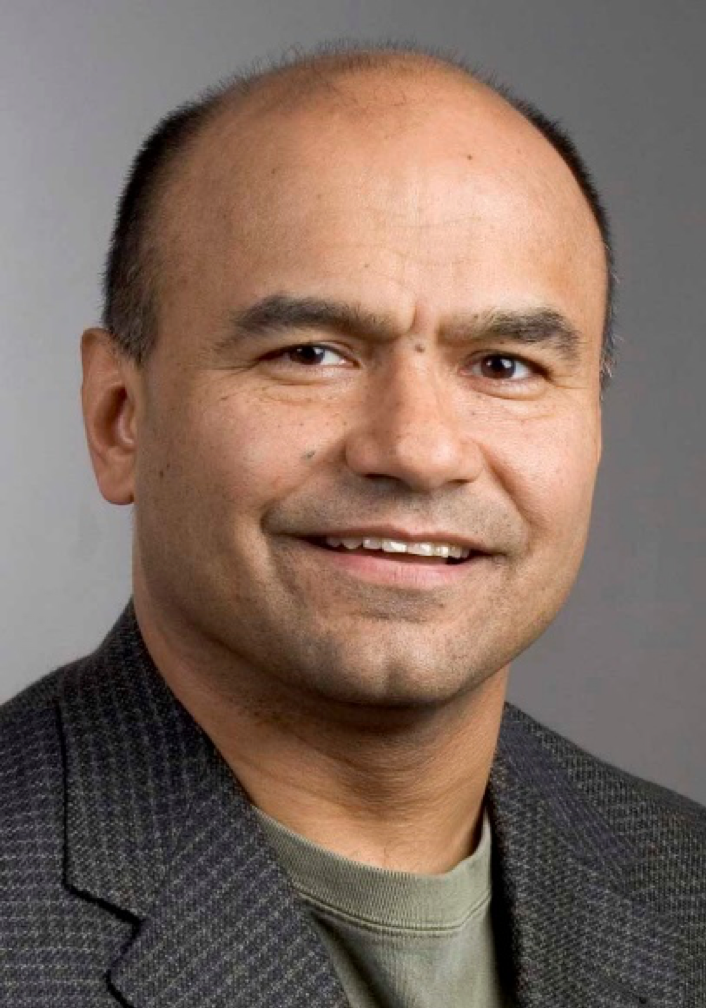B. Sonny Bal1, Jin Ye Yeo2
1SINTX Technologies, Salt Lake City, UT, USA; 2JSS Editorial Office, AME Publishing Company
Correspondence to: Jin Ye Yeo. JSS Editorial Office, AME Publishing Company. Email: jss@amegroups.com
This interview can be cited as: Bal BS, Yeo JY. Meeting the Editorial Board Member of JSS: Prof. B. Sonny Bal. J Spine Surg. 2024. https://jss.amegroups.org/post/view/meeting-the-editorial-board-member-of-jss-prof-b-sonny-bal.
Expert introduction
Prof. B. Sonny Bal (Figure 1) has served on the Board of Directors of SINTX Technologies since February 2012, and as Chairman of the Board since August 2014. From 2014 to 2024, he served as the CEO & President of SINTX Technologies, a publicly-traded company focused on the development of silicon nitride ceramic biomaterials and technologies.
Prof. Bal previously served as Professor of Orthopaedic Surgery, and Adjunct Professor of Material Sciences at the University of Missouri. He has >20 years of clinical experience as an orthopaedic surgeon and attorney, and is affiliated with several professional organizations. In addition to serving on the editorial boards of peer-refereed journals, Prof. Bal has researched and published extensively in ceramic science, and continues that work. Relevant to the Journal of Spine Surgery, he has published in the spine literature, supervised clinical studies, and developed implants and technologies for spinal fusion surgery.
Prof. Bal holds an M.D. from Cornell University, an M.B.A. from Northwestern University, a J.D. from the University of Missouri and a Ph.D. in Materials Engineering from the Kyoto Institute of Technology.

Figure 1 Prof. B. Sonny Bal
Interview
JSS: What initially drew you into the field of orthopedic surgery? How have your interests within the specialty evolved over time?
Prof. Bal: The mechanical aspects of orthopedic surgery interested me during medical school. As a surgeon, it was gratifying to return patients to pain-free function after reconstructing painful, arthritic hip and knee joints. My interests evolved into investigating ceramic materials as the next generation of biomaterials for spine fusion, as well as joint reconstruction.
JSS: Could you provide a brief overview of the latest advancements in the development of ceramic materials for joint replacements? Are there any examples that hold significant promise?
Prof. Bal: Spine fusion implants made of silicon nitride have captured only a miniscule amount of the market share, when compared to metal and plastic implants. Nonetheless, silicon nitride has shown excellent long-term clinical outcomes, faster bone fusion, and a lower risk of bacterial adhesion which is a precursor to implant infection. The advancements of the future include articulating surfaces for hip, knee, and shoulder replacements that are made of silicon nitride, which will potentially perform better than the current metal and plastic devices.
JSS: How do you envision the role of emerging technologies, such as blockchain, in transforming orthopedic surgery and healthcare delivery overall?
Prof. Bal: The main contribution of modern technologies like blockchain and artificial intelligence will be to reduce system inefficiencies, redundancies, and reduction or elimination of the many non-value-added steps that plague health care delivery today. These technologies will hopefully let physicians spend more face time with patients, rather than screen time in front of a computer.
JSS: What do you believe are the next major breakthroughs in orthopedic implant technology that could revolutionize patient outcomes?
Prof. Bal: I am biased given my research and professional background, but I truly believe that ceramic-based technologies, such as silicon nitride, will be instrumental in developing superior orthopedic implants that enhance biological responses to bone healing, have indefinite biocompatibility and durability, and above all, can resist infection for the lifetime of the patient.
JSS: In what ways do you think orthopedic surgery can contribute to addressing global health challenges, particularly in resource-limited settings?
Prof. Bal: In resource-limited settings, the availability of primary orthopedic services, targeted at metabolic bone health, appropriate nutrition, preventative strategies to avoid musculoskeletal injuries, knowledge and awareness of skeletal health metrics, and early detection and treatment of pediatric orthopedic conditions have the most potential toward contributing to global health.
JSS: What continues to drive your passion for research and innovation in orthopedic surgery, and what goals do you still hope to achieve in your career?
Prof. Bal: The continued passion and drive of young investigators, and the deep commitment of healthcare professionals toward improving the lives of their patients attracted me to the profession in the first place, and it now drives my passion for continued R&D in orthopedic surgery. In the final phase of my career, I hope to have a law practice that helps patients with musculoskeletal injuries, in hopes of making system changes that avoid such injuries in the first place.
JSS: How has your experience been as an Editorial Board Member of JSS?
Prof. Bal: JSS has been very supportive of my role as an Editorial Board Member, and the quality of the submissions keeps improving. It is an honor to serve on the Editorial Board.
JSS: As an Editorial Board Member, what are your expectations for JSS?
Prof. Bal: My expectations are that the Editorial Board continues to encourage innovative and young investigators to publish in JSS, by removing barriers and constraints that limit other similar journals. We need to disseminate new knowledge quickly and widely, in order for it to make the most impact. That is an expectation toward which I hope to continue contributing.
